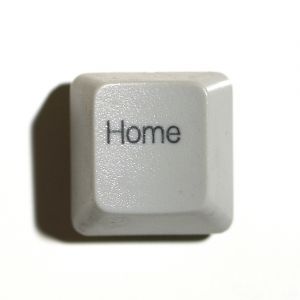 If you search the word “home” on the Internet, you get some pretty interesting results. For example, Wikipedia defines home in the following way: “A home is a place of residence or refuge. When it refers to a building, it is usually a place in which an individual or a family can live and store personal property. Most modern-day households contain sanitary facilities and a means of preparing food.”
If you search the word “home” on the Internet, you get some pretty interesting results. For example, Wikipedia defines home in the following way: “A home is a place of residence or refuge. When it refers to a building, it is usually a place in which an individual or a family can live and store personal property. Most modern-day households contain sanitary facilities and a means of preparing food.”
That pretty much sums it up in a very clinical way, sort of cold and matter of fact. I thought that it was interesting that there was a mention about how home can be referred to as a building, implying another definition. In other words, home can be the actual physical location, or it can be something else. In fact, couldn’t the word “home” also mean no location at all.
For example, there are people that we “feel at home with” places and things that “feel like home,” and even anywhere we hang our hats. So a home is both the common and ordinary, a normal place of refuge or shelter that most people have access to, and also the extraordinary. A home can pretty much be defined as anything we want it to be.
The word home has been used to modify so many other things as well, changing the meanings of words. For example, if I go into my search engine and type in the term “What is a home” I get several suggestions about completing my search, from the practical “what is a home equity loan” to the strange “what is a homeric simile” to the disturbing “what is a home wrecker.” There are also plenty of suggestions for homemade zip lines, presumably to put in the backyards of our homes.
(By the way, the homeric simile derives its name from Homer, the composer of the two famous epics, the Iliad and the Odyssey and is a comparison to some kind of event, something Homer tended to do a lot of in his writing.)

